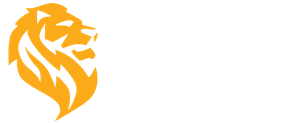Integrating Keyman Insurance Planning Within an MSO Framework
How Management Services Organizations amplify protection, executive continuity, and financial flexibility using strategic life and disability insurance structures.
Introduction: When One Person Is the Business
Every privately held company has individuals so critical to the business that their loss—whether due to death, disability, or departure—could create operational chaos. These are the key people: founders, sales leaders, subject matter experts, or executive managers who hold the knowledge, relationships, or leadership the business relies on.
Keyman insurance was designed to protect against these risks. But in today’s complex landscape, simply owning a term policy isn’t enough. With rising business valuations, tighter credit, and increased succession complexity, the need for strategic, tax-efficient, and integrated coverage has never been more urgent.
At Guardian Tax Consultants, we show clients how to use Management Services Organizations (MSOs) as the ideal home for keyman planning—pairing the benefits of corporate-owned life insurance (COLI), retail-owned trust policies, disability key person coverage, and now overhead disability insurance into a seamless, tax-smart structure that protects both people and enterprise value.
Why Keyman Insurance Isn’t One-Size-Fits-All
Keyman insurance is traditionally defined as life or disability coverage on a key employee or owner, owned by and payable to the business. The proceeds help the company recover, recruit, or restructure. However, this basic structure can fall short due to:
- Improper ownership triggering transfer-for-value tax issues
- Funding from high-tax personal distributions
- Lack of integration with compensation or continuity planning
- Estate inclusion for the owner or shareholder
- Gaps in payout control or policy portability post-exit
Worse, these policies often go underutilized—failing to integrate with deferred compensation, buy-sell agreements, or executive retention strategies.
What Is an MSO — and Why It’s the Right Home for Keyman Planning
A Management Services Organization (MSO) is a C-Corporation that provides administrative, executive, and strategic services to one or more operating companies (OpCos). The MSO can:
- Employ executives and managers
- Own and manage contracts, IP, and infrastructure
- Retain profits at the 21% corporate tax rate
- Fund and hold insurance policies, DCPs, and employee benefit plans
- Remain operational even after the OpCo is sold
This structure separates risk and overhead from operations, making it the perfect platform to house strategic assets like keyman insurance.
🛡️ Strategic Options for Keyman Insurance Inside or Alongside an MSO
Guardian helps clients implement four core formats of keyman coverage, depending on ownership, tax, and exit objectives. These structures are not mutually exclusive—and often complement each other.
✅ 1. COLI-Based Keyman Coverage Inside the MSO
Corporate-Owned Life Insurance (COLI) policies are issued on key employees or owners and held by the MSO. These policies:
- Grow cash value tax-deferred
- Are often guaranteed issue
- Provide institutional pricing with low cost per $1 of death benefit
- Become balance-sheet positive within 12–24 months
- Fund DCPs or executive continuity plans
- Pay out tax-free to the MSO upon death
Because premiums are paid from MSO profits taxed at 21%, the cost of coverage is dramatically reduced versus personal ownership.
✅ 2. Retail Keyman Policy Owned by a Trust
For estate and succession planning, a retail universal life or whole life policy can be structured as follows:
- The trust (e.g., ILIT or business trust) owns the policy
- The business (or MSO) funds the policy via loan or gift
- The death benefit bypasses the estate of the insured
- Can include spousal income planning or dynasty trust features
- Maintains control of proceeds independent of business operations
This method is ideal for family businesses or owners who want asset protection, estate exclusion, and flexibility after retirement or exit.
✅ 3. Key Person Disability Insurance
Disability keyman coverage is essential for businesses reliant on technical experts, rainmakers, or owners with irreplaceable knowledge.
- Pays a lump sum or monthly benefit to the company if the key person becomes disabled
- Stabilizes operations and buys time for recruiting or transition
- Maintains lender and investor confidence
- Often covers the period between disability and recovery or sale
This form of protection is ideal for service-based businesses or small firms where one person drives a majority of revenue.
✅ 4. Overhead Disability Insurance
Overhead disability insurance covers a different type of risk. Rather than replacing lost revenue, it funds ongoing business expenses if the owner or key employee becomes disabled.
This coverage pays for:
- Rent, utilities, and office expenses
- Payroll for non-disabled employees
- Equipment leases, software, and other fixed costs
- Business insurance and vendor obligations
For small businesses, especially professional practices (medical, dental, legal, consulting), overhead disability insurance keeps the lights on until the owner returns or a replacement is found. When funded through the MSO, it can be integrated into broader executive risk management and reduce the financial burden of an unexpected event.
🔄 When Should You Cover Employees vs. Owners?
Guardian recommends evaluating both owner and non-owner executives for key person and overhead coverage. While founders are a natural starting point, many companies miss exposure hiding in mid-level leadership or specialists.
An MSO enables centralized, compliant, and cost-effective deployment of these policies—with documentation that supports risk transfer and M&A due diligence.
🧠 Case Study: Four-Tier Keyman Strategy
A growing healthcare platform implemented a four-pronged strategy with Guardian:
- COLI on the CEO, held in the MSO, funding retirement and DCP
- Retail universal life on the CFO, owned by a family trust to support generational transition
- Disability key person coverage on the COO and marketing director
- Overhead disability coverage on the founding partner to protect practice expenses
This design ensured enterprise stability across death, disability, and departure—while maximizing tax efficiency and preparing for a private equity sale 24 months later.
💼 Summary: Why MSOs Are the Ideal Platform for All Four Insurance Types
- 44% lower federal tax cost on premiums
- Ownership aligned with legal, estate, and tax goals
- Integration with DCPs, consulting income, and exit planning
- Policy flexibility across COLI, retail, disability, and overhead
- Avoidance of transfer-for-value risks
- Institutional pricing and guaranteed issue underwriting
- Centralized control post-sale or post-retirement
- Ability to retain policies after selling the operating business
- MSO keyman insurance
- Disability key person coverage
- Overhead expense disability policy
- Trust-owned life insurance planning
- Tax-efficient executive insurance
- Deferred comp COLI strategy
- Estate exclusion life insurance
- MSO structure insurance platform
- Key employee continuity protection
- Corporate-owned vs. trust-owned policies




